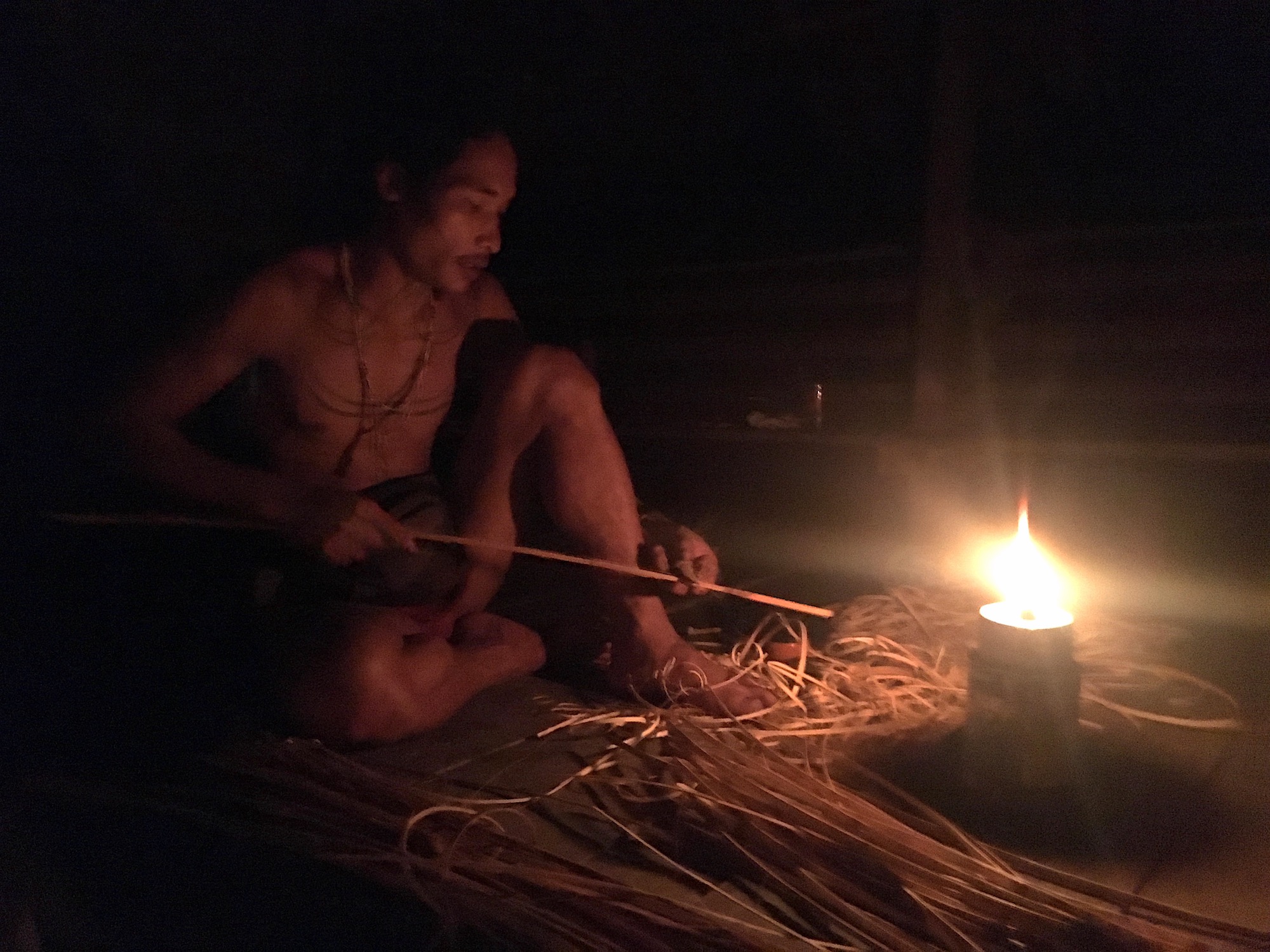I suppose I’ve always known that there are men in isolated parts of the word who dress in bark-fiber loincloths and lace their arms and legs in animist tattoos, but it was a tad strange to meet one in person. During the days I stayed at Amantiru’s longhouse a part of me kept waiting for him to change into a t-shirt, or break out a smartphone. But that didn’t happen.
Amantiru admits that he felt disoriented the first time a foreigner came into the jungle. He was 12 years old at the time, and the sight of a big, lumbering, sweaty white-skinned creature frightened him. He says he literally did not know what he was seeing; that he wanted to run away, to get his hunting bow and protect himself. But the guide – a Mentawai man he’d met before – gently explained that this creature was human too, an outsider, a guest.
Amantiru is now 40, and he hosts about two-dozen trek-travelers each year. He and his wife Baitiru raise pigs and chickens; they harvest durian and coconuts; they hunt for monkeys and jungle-squirrels; they process sago, the main food staple in the Siberut jungle. They have two girls and one boy – aged 8, 12, and 17 – all of whom attend school in a modern village four hours away.
Usually, in my travels, when I tell folks I’m American, they’ll bring up Michael Jackson or Barack Obama or Arnold Schwarzenegger. But Amantiru doesn’t have a TV or radio; he doesn’t read, so get gets his news by word-of-mouth. When he learns my nationality, he says: “America. Your people have walked on the moon.”
The Indonesian government doesn’t recognize animist religions, so when Amantiru got a government ID card, his religion was listed as “Catholic,” since some village Mentawai have converted over the course of the past half-century. But Amantiru is a shaman; his full-body tattoos represent plant and animal totems.
Amantiru is worried about his daughter; he is considering traveling out to the village so he can spend some time with her. He says remembers what it was like to be 17 years old. His young adulthood was shaped by the traditions of the jungle, but she lives in a boarding school with kids who watch TV and use cell-phones. When she graduates, she will choose whether to stay in the village or return to the jungle.
On my first night of sleeping on the longhouse porch, Amantiru sings a melancholy song after dusk: A soft, a cappella melody so thick with sadness I can’t help but feel a welling of emotion in my throat, even as I don’t understand the words.
Later, I ask my guide, Agus, what Amantiru had been singing about. “He was singing about his father,” Agus says, “He was a shaman too, and he died six months ago. He was singing about how much he misses him, how he’s not sure what he’ll do now when he has a question about the jungle, or the spirits, or his own children. He was singing about how it is through his children that he hopes to honor everything his father lived for.”
Note: “Dispatches” are short vignettes, profiles, and mini-essays written and posted from the road, often in tandem with my Instagram account. For more full-formed writing, check out my book Marco Polo Didn’t Go There, or the Essays or Stories archives on this site. I don’t host a “comments” section, but I’m happy to hear your thoughts via my Contact page.

